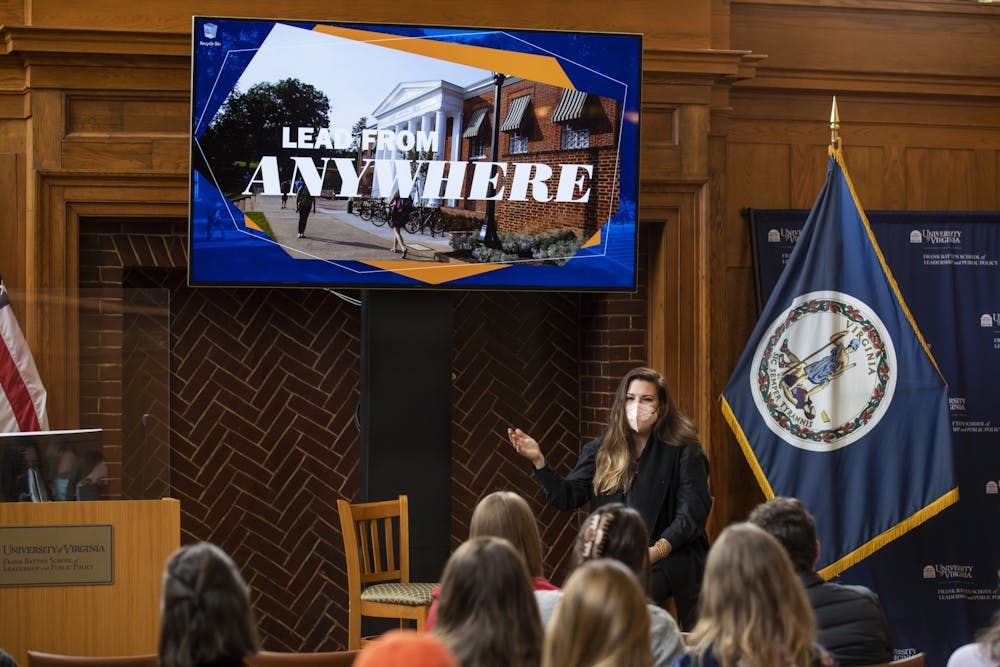Every January since 2011, the Community MLK Celebration Planning Committee has organized a month of events to celebrate the life and legacy of Dr. Martin Luther King Jr. This year’s event series spanned from Jan. 17 to Feb. 8 and touched on the topics of history, art and social justice.
The event series covered a variety of subjects, including affordable housing, identity in injustice, healthcare justice, data activism and LGBTQ+ policy issues, among many others. Many of the events highlighted the intersectionality of issues as they appear in the University community and society as a whole.
Third-year College student Ainsley Zimmer attended the celebration through the Office for Sustainability’s Affordable Housing is Sustainable Housing program. Zimmer noted how the event helped her recognize the intersection between sustainable housing and healthcare justice. She believes in the importance of acknowledging the University’s past as a means of enacting clear change going forward.
“Tackling affording housing means addressing healthcare justice and banking and education and districting and policing and criminal justice,” Zimmer said. “Looking into the past and acknowledging the history of U.Va. as well as making visible systemic racism in the major institutions students both actively benefit from as well as are harmed by is only the starting point.”
Lela Garner, Student Outreach & Engagement Specialist for the Office for Sustainability, helped plan and promote the affordable housing event that Zimmer attended. Garner spoke to the purpose of the celebration and how its message bridges the gap between University life and systemic race inequities in the area.
“I think the MLK celebration event series is a way to unite our community in the legacy of Dr. Martin Luther King Jr. and the work that he did,” Garner said. “The series as a whole works on helping folks understand the connection between race relations and education and history in our community.”
The theme for this year’s celebration was “Why We Can’t Wait,” taken from Martin Luther King Jr.’s 1964 book by the same name about the history of Black oppression and the growing impatience with slowly-enforced change. For many, including Garner, the short title is read as a message of urgency.
“I think, for me personally, it's kind of a call to action — like the time is now,” Garner said. “We have these issues laid out in front of us, and we all need to feel empowered and educated to speak and act on behalf of those challenges.”
At all of the celebration’s events, participants learned about opportunities for growth and active engagement in the community that underscored the theme, “Why We Can’t Wait.”
“Making space for ‘waiting’ or ‘patience’ essentially frames issues facing Black Charlottesville residents, University staff and students as tolerable for the time being,” Zimmer said. “Slow rolling and small changes in the University, often prioritizing individual-level interactions rather than institutional changes, are what continues to make the message of ‘Why We Can’t Wait’ just as pertinent today and tomorrow as it was in 1964.”
The celebration was planned jointly by the University’s Division for Diversity, Equity and Inclusion and the Community MLK Celebration Planning Committee. In addition, the events were co-sponsored by community partners, including the School of Engineering and Applied Science, the Albemarle Charlottesville Historical Society and the Office for Sustainability.
The co-sponsorships enabled the University’s organizations to enlist the help of other organizations in the greater Charlottesville community when planning and promoting the events.
“It's a really nice reminder that these folks are in our community and making such a profound impact on a really important topic,” Garner said. “It was really interesting to see all of these people unite together with such a strong synergy emphasizing how important the topic is and how interconnected housing, sustainability, food access and all those topics can be.”
Students, Charlottesville community members and University staff were all encouraged to attend the free, public events. Though most of the events were held virtually over Zoom, a few events adopted a hybrid format with a limited number of participants invited to attend sessions in person.
PRIDE at Batten Presents Victoria Lill was one event that offered both an in-person and virtual component. The event’s speaker, Victoria Lill, recounted her experience dealing with issues of LGBTQ+ discrimination and racial segregation as an attorney with the U.S. Department of Justice’s Civil Rights Division. Kaytee Wisley, a graduate Batten student and event organizer, noted the importance of continuing the conversation.
“I think despite the fact that we have made a lot of progress as a country, there are still obviously areas where bigotry is present and racism is present,” Wisley said. “Moving forward as an institution, prioritizing racial equity and everything that the institution does is really important.”
“Charlottesville occupies a unique position within the national gaze as not only home of the University of Virginia, built and maintained by thousands of enslaved laborers, instituted by founding father and slaveholder Thomas Jefferson, and a leading institution in eugenics research, but [also] the site of the Unite the Right Rally of 2017,” Zimmer said.
When looking ahead into the immediate future, Garner hopes to see an increase in sustained dialogue held on these topics. With MLK’s call to action reminding the community that it cannot sit around and wait for change to happen, Garner promotes the need to confront the University’s troublesome history head on.
“U.Va. has a complex relationship with race relations,” Garner said. “So I think it’s really important to elevate conversation about equality, inclusivity [and] accessibility as much as possible.”







